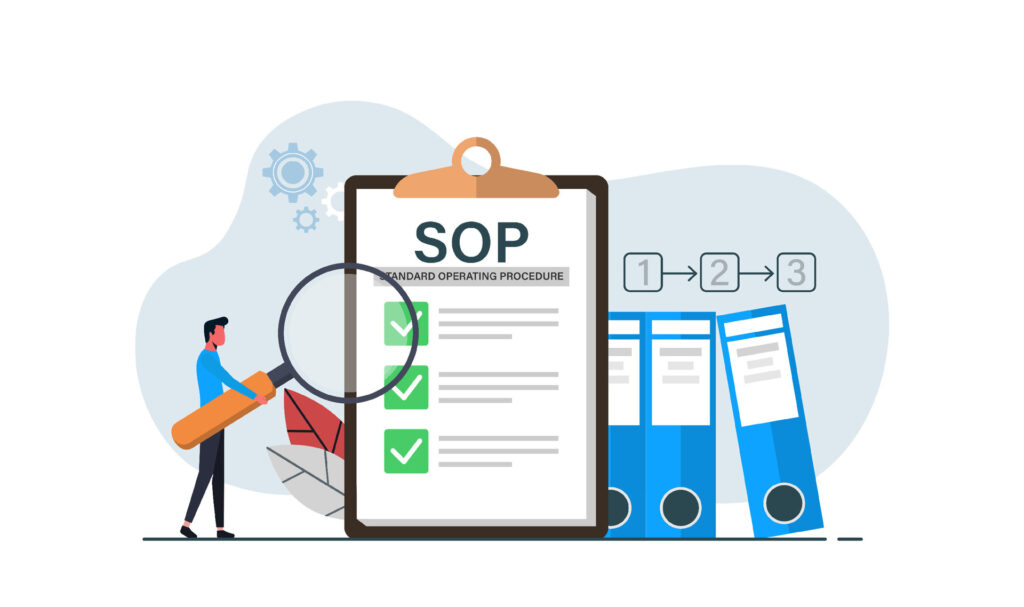Many entrepreneurs do not know how to treat the role of a small business owner they have stumbled into because they often find themselves operating their ventures more like hobbies than structured enterprises. This tendency can stem from various factors, including the passion-driven nature of their businesses, limited resources, and a lack of formal business knowledge.
While the enjoyment and personal fulfillment derived from these businesses are significant, the absence of structured practices can hinder long-term growth and stability. Understanding why small business owners adopt a hobbyist approach is important for addressing the challenges they face and helping them transition to a more strategic, growth-oriented mindset.
This article looks into the 10 common reasons behind this phenomenon and offers insights into fostering a more structured business approach.
Passion-Driven Initiatives

Many small business owners start their ventures driven by a deep passion for their craft or interest. This enthusiasm often stems from hobbies or personal projects that bring them joy and fulfillment. While this passion fuels creativity and dedication, it can also lead to prioritizing the love of the work over essential business practices.
Owners may focus more on perfecting their product or service than on financial planning, marketing strategies, or operational efficiencies. This approach can result in a business that remains small and manageable, aligning more with the owner’s personal satisfaction rather than a broader market demand.
Balancing passion with business acumen is essential for growth, but many owners struggle with this transition, finding it challenging to shift from a passion-driven mindset to one that embraces the necessary, albeit less enjoyable, aspects of running a structured, profitable enterprise.
Lack of Experience or Business Knowledge
A significant number of small business owners may not have prior experience in running a business or formal business education, leading them to focus more on the enjoyable parts of their work while neglecting essential business practices.
They may not be aware of the best practices for running a structured business, such as financial planning, marketing strategies, human resources and operational management, and may lack the necessary knowledge and skills.
They may not understand how to create a business plan, manage cash flow, or develop a scalable model. This knowledge gap can result in a reactive rather than proactive approach to business, where decisions are made on an ad-hoc basis rather than through strategic planning.
Furthermore, the absence of someone to guide them can leave owners feeling isolated and unsure about how to navigate business challenges. Investing time in learning basic business principles or seeking the assistance of a business management consultant can significantly improve their ability to structure and grow their business effectively.

Limited Resources
Small businesses often have limited resources in terms of finances, time, and manpower, which can make it difficult for owners to run their businesses in a structured and organized way. They often have to wear multiple hats and find it challenging to allocate time and money towards strategic planning and structuring their business with systems and processes, because they are juggling multiple roles within the business.
Financial constraints can also hinder investments in technology, marketing, and professional development, which are key for business growth. This scarcity of resources often forces owners to prioritize immediate operational needs over long-term strategic goals. Consequently, the business may remain in a perpetual state of day-to-day survival, lacking the structure necessary for sustainable growth and development.
Part-Time Effort
Many small business owners treat their ventures as part-time efforts, often balancing them with other jobs or personal commitments. This split focus can lead to a business operating more as a side project than a full-fledged enterprise.
With limited time and energy dedicated to their business, owners may prioritize immediate tasks over strategic planning and growth initiatives. This part-time approach can result in inconsistent customer service, marketing efforts, and operational inefficiencies.
To transition to a more structured business, owners need to allocate more consistent time and effort, potentially shifting from part-time involvement to a more committed, full-time focus.
Informal Start – Lack of Planning
Some small business owners start informally and may not have a formal business plan or may not have clear goals and objectives for their business, leading to a lack of structure and direction. Some owners give the excuse that they are already too busy and are unprepared to get a formal business plan written because of perceived cost.

Owners might jump into operations without necessary foundational planning. They do not fully understand their target market, competitive landscape, or the financial requirements for sustaining and growing their business. Without a business plan, these ventures often lack direction, making it difficult to measure progress or make informed decisions.
This ad-hoc approach can result in inconsistent operations, cash flow issues, and missed opportunities for growth. It does not take too long before operations become “chaotic” and frustration and overwhelm set in for the business owner.
In addition, an informal start can lead to challenges in scaling the business, as the necessary processes and structures are not in place.
To transition to a more structured business model requires revisiting the initial concept with a strategic mindset, setting clear objectives, and developing a comprehensive business plan to guide the business forward.
Fear of Formalization
The fear of formalizing a business can stem from several sources, causing owners to keep their ventures in a hobby-like state. Some owners prefer to stay in their comfort zone – sticking to what they know and enjoy rather than venturing into unfamiliar and potentially stressful business territories such as marketing strategies or financial forecasting.
Furthermore, the prospect of formalizing a business can be daunting due to perceived complexities and responsibilities, such as structured systems and processes, maintaining detailed financial records for taxes, adhering to regulatory requirements, and paperwork, additional administrative workload, and the fear of failure.
They are also concerned that formalization will subject them to higher scrutiny and liability. Consequently, owners may prefer to be focused on short-term activities and day-to-day operations without a strategic vision for growth. Also, the prospect of scaling up and facing greater competition can be intimidating, leading to a reluctance to step out of their comfort zone.
Overcoming this fear involves understanding the benefits of formalization, such as improved efficiency, better financial management, and enhanced growth opportunities.
Overwhelm

Running a small business can be overwhelming, and some owners may struggle to balance the day-to-day operations with long-term strategic planning and management which they already find difficult to handle.
Small business owners often feel overwhelmed by the myriad of tasks involved in running a business. Managing operations, marketing, finances, and customer service can be daunting, especially when they lack a structured approach. This sense of overwhelm can lead to prioritizing day-to-day survival over long-term planning, resulting in a reactive rather than proactive management style.
The constant juggling of responsibilities can cause burnout and hinder the ability to focus on strategic growth. Simplifying processes, delegating tasks, and seeking support from a professional services can help reduce overwhelm and create a more structured, manageable business environment.
Personal Satisfaction Over Profit
Some owners prioritize personal fulfillment and lifestyle benefits over profit maximization, leading them to treat their business more casually. Many small business owners are emotionally invested in their businesses and may prioritize passion and creativity over strict business principles and structures.
Preference for Flexibility
A less structured approach allows for greater flexibility and adaptability, which some owners prefer over the rigidity of a formal business structure.
Many small business owners prefer flexibility over structure, valuing the ability to make decisions on the fly and adapt quickly to changing circumstances. This flexibility allows them to manage their work-life balance effectively, accommodating personal commitments and spontaneous opportunities.
However, this preference can lead to a lack of structured processes and long-term planning, hindering business growth. Owners may resist formalizing their operations or scaling their business to maintain this flexibility, potentially limiting their ability to capitalize on growth opportunities or compete effectively in the market.

Without defined processes and systems in place, small business owners may find it challenging to hold themselves and their employees accountable for performance and results.
Finding a balance between flexibility and structured business practices is essential for sustainable growth and success.
Social and Community Aspects
For some owners, the social interaction and community engagement aspects of their business are more important than formal business growth. Have you encountered some small business owners that hop and trot between networking meetings and social gatherings without fully taking advantage of professional resources to improve their businesses?
Many small business owners prioritize relationships with customers, suppliers, and the local community, focussing on creating a positive impact and fostering strong connections rather than strictly maximizing profits or implementing structured business practices.
This emphasis on social interaction can lead to a personalized customer experience and a loyal customer base. However, it may also result in a business model that prioritizes community engagement over scalability or profitability.
Balancing community involvement with effective business management can help owners leverage their social strengths while achieving sustainable growth and success.
Conclusion – How to Treat the Role of a Small Business Owner
Understanding these reasons can help small business owners recognize areas where they might benefit from adopting more structured business practices, thereby enhancing their business’s potential for growth and success. Addressing these challenges often involves education, mentorship, and access to resources that can help small business owners transition from a hobbyist mindset to a more structured and strategic approach.
Related Articles
- How to Fix 9 Overlooked Challenges in Small Business
- How to Restore Order to Your Business. Create a Business Plan
- I Need a Business Plan Written – In Simple Language
- Why Create a Business Plan? How This Helps Growth
- Why Write My Business Plan – 7 Reasons For Small Businesses
FAQ
How can I fulfil the role of a small business owner and balance passion with the demands of running the business?
As a small business owner, you can balance passion for your work with the demands of running a business by adopting a structured approach. While passion drives creativity and dedication, you must complement it with strategic planning and operational efficiency. This involves setting clear business goals, understanding market needs, and implementing effective financial and marketing strategies.
What are small business owner responsibilities that help transition from a hobbyist mindset to a structured business approach?
Transitioning from a hobbyist mindset to a structured business approach involves several key steps. First, owners should educate themselves on fundamental business principles, such as financial management and marketing strategies. develop a formal business plan that outlines goals, target market analysis, and financial projections and provides a roadmap for growth.
Implementing structured processes, such as establishing clear roles and responsibilities, investing in technology, and seeking mentorship, helps streamline operations and enhance efficiency. Embracing a proactive rather than reactive approach to challenges and opportunities ensures the business moves towards sustainable growth and profitability.
How can a small business owner maintain flexibility while implementing structured business practices?
Small business owners can maintain flexibility while implementing structured practices by focusing on adaptable systems and processes. This involves leveraging technology to automate routine tasks, allowing for more time to respond to changing market conditions and customer needs. Implementing agile project management methodologies enables the business to pivot quickly and efficiently.
Also, establishing clear communication channels and empowering employees to make decisions fosters a responsive organizational culture without sacrificing efficiency. By balancing flexibility with structured practices, owners can effectively navigate uncertainties while positioning their business for long-term success and growth.
References
Beltis, AJ (2023) Hubspot What is a Business Plan? Definition, Tips, and Templates https://blog.hubspot.com/marketing/what-is-business-plan

